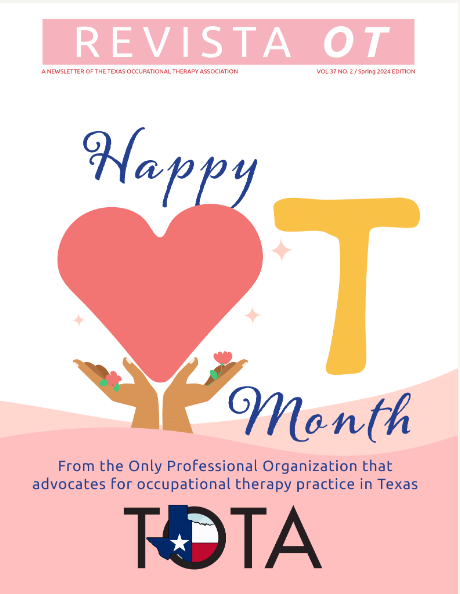|
Stress... What’s the Big Deal? Healthy Ways to Manage Stress and Improve Therapeutic Outcomes - Trinity North CEU meeting
Thursday, December 12, 2019, 6:00 PM - 7:30 PM CDT
Category: Trinity North District
Title of the Workshop: Stress... What’s the Big Deal? Healthy Ways to Manage Stress and Improve Therapeutic Outcomes Location: Texas Woman's University - Dallas Campus Presenters: Amber Kocian, OTR, C-IAYT, E-RYT 500 and Beth Belk, PT, DPT, C-IAYT, RYT 500 Learner Objectives: 1.The participant will understand and define stress, the physiology of stress, and the mal-effects of chronic stress on the body and will differentiate acute stress versus chronic stress. 2.The participant will recognize patients who may be at risk of chronic stress and how this condition can impact a person’s occupational participation/performance and general health over a lifespan. 3. The participant will understand and explain the role of occupational therapists in helping clients with healthy stress management techniques. 4.The participant will experience a variety of yoga-based breathing and relaxation techniques which may be applied to themselves and/or used with clients as an occupation-based intervention or as a preparatory intervention within an appropriate therapeutic setting. Application or Relevance to Occupational Therapy Practice: Studies show that chronic stress and stress-related illnesses are rampant and continuing to increase every year. The Center for Disease Control and Prevention estimates that stress accounts for about 75% of all doctors’ visits in the U.S. resulting in millions of dollars spent in healthcare costs. Stress closely affects the immune system leading to a multitude of physical, psychological, and emotional conditions. Stress related physical illnesses include coronary artery disease, gastrointestinal issues, migraine headaches, autoimmune diseases including rheumatoid arthritis, diabetes mellitus, chronic migraine headaches, hypertension, and cancer. Psychologically, stress increases anxiety, depression, and other mental health illnesses including bipolar disorder and schizophrenia. Emotional stress is a major contributing factor to the six leading causes of death in the United States: cancer, coronary heart disease, accidental injuries, respiratory disorders, cirrhosis of the liver, and suicide. As occupational therapists, it is imperative to understand the effects of stress, not only from a stress related illness standpoint, but how it could be impacting their patients’ progress (or lack of) in therapy. Contrary to the limited time that primary care physicians have with their patients, occupational therapists have the opportunity to work closely with their patients, and for several visits. This opportunity allows the therapist to help patients not only restore their independence and function, but also become aware of how stress could be negatively affecting their overall well-being and quality of life. Through keen observation, a complete review of the medical and psychological history, and gentle yet thorough questioning, the occupational therapist will be able to recognize when their patient is experiencing stress that may be limiting their progress in therapy and increasing their risk for physical or mental illness. The therapist can then educate their patient with yoga-based breathing and relaxation techniques and mindfulness in order to manage stress and pain, increase neurological resilience, and ultimately maximize their functional outcomes. It is important to note that these techniques can and should be also utilized by the therapists in order to prevent “caregiver burnout.” |

 Prev Month
Prev Month View Month
View Month Search
Search Go to Month
Go to Month Next Month
Next Month Export Event
Export Event 
